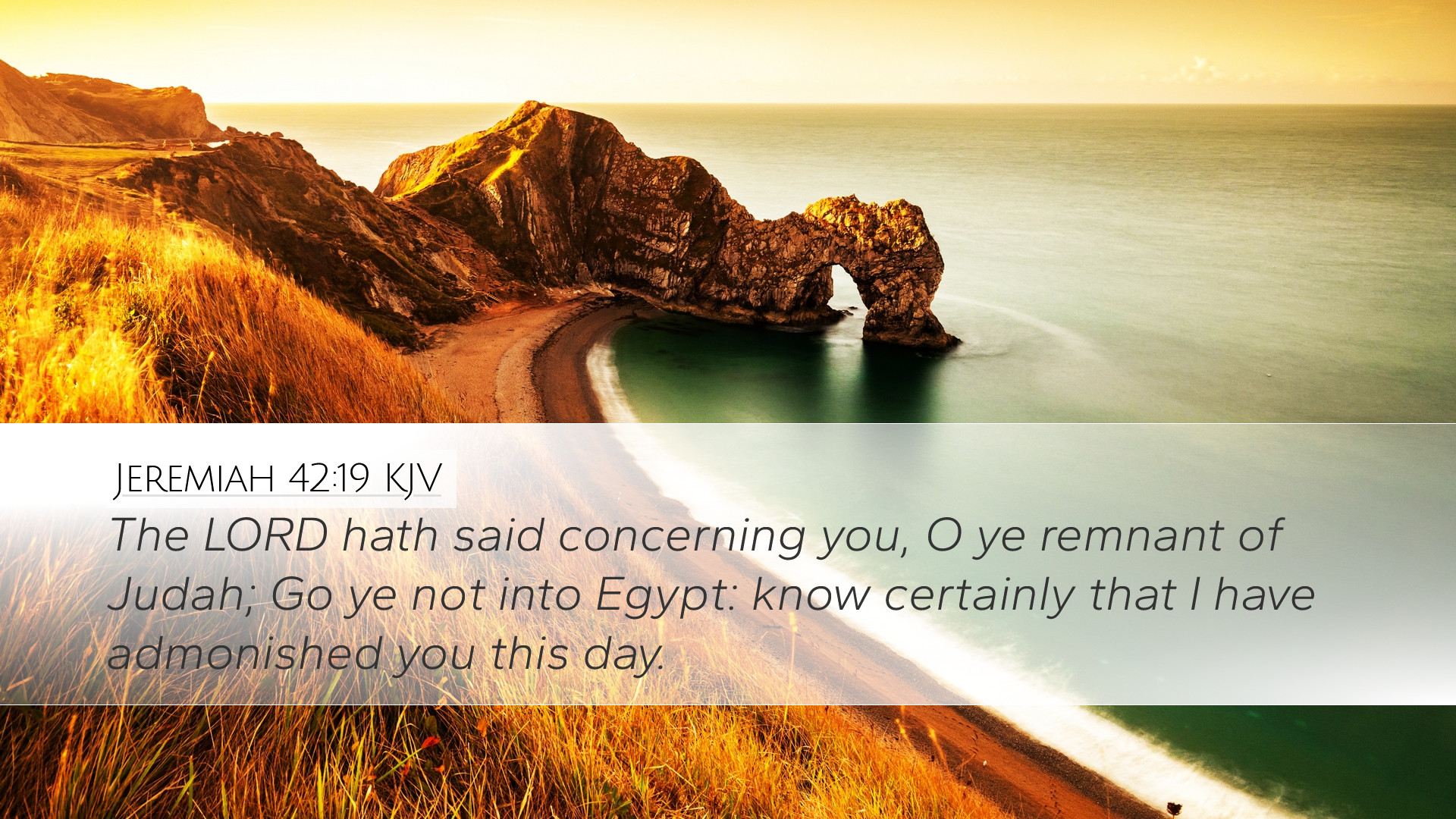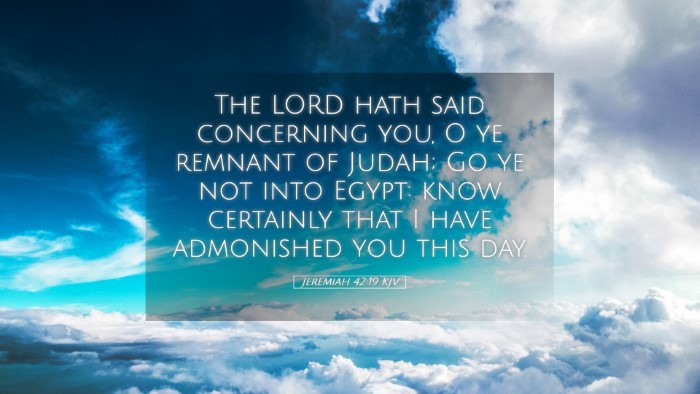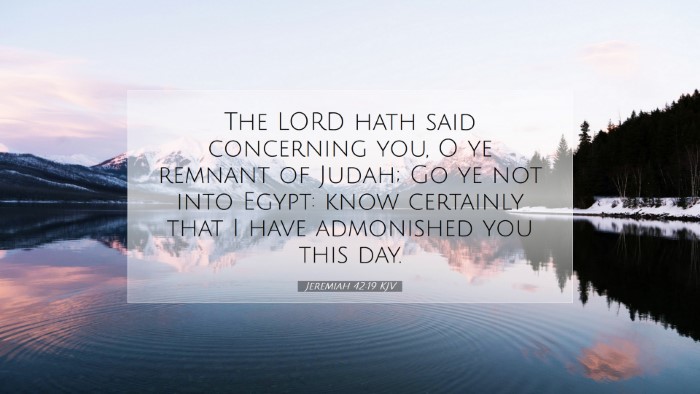Commentary on Jeremiah 42:19
Jeremiah 42:19 states:
"The Lord has spoken concerning you, O remnant of Judah; Do not go to Egypt." (Jeremiah 42:19, ESV)
This verse serves as a pivotal moment in the narrative of the remnant of Judah, encapsulating God's directive amidst uncertainty and fear. The insights from various public domain commentaries highlight the theological, historical, and moral implications of this passage.
Contextual Background
Following the fall of Jerusalem, the remnant of Judah, feeling vulnerable and abandoned, sought refuge in Egypt. Their plan was to escape the oppression they faced from the Babylonian invaders. However, this decision prompts a significant response from God through the prophet Jeremiah.
The Argument Against Flight to Egypt
Here, God is clear: His directive is against migrating to Egypt. Commentators such as Matthew Henry emphasize that this act would signify a lack of trust in God's provision and protection. By preferring the safety of Egypt over faith in God's promises, the remnant reveals their spiritual state of disobedience.
God's Sovereignty and Guidance
- Albert Barnes notes that when God communicates with His people, He does so with authority and chastisement, indicating His sovereignty over their circumstances.
- Adam Clarke points out that God's counsel here is one of both protection and preservation. By encouraging the remnant to remain in Judah, God promises His presence and support amid adversity.
Theological Implications
The content of Jeremiah 42:19 can be unpacked to reveal several core theological themes:
- Faith vs. Fear: The remnant’s inclination to flee suggests a struggle between faith in God and the overwhelming fear of their situation. Reliance on worldly safety (i.e., Egypt) contrasts sharply with God's command, which calls for faithfulness in adversity.
- Divine Guidance: The assurance of God's guidance is paramount. If believers are attentive to God's voice, they will discern the best paths even amidst challenging circumstances.
- Consequences of Disobedience: This directive underscores the broader theme of disobedience leading to dire consequences. The historical narrative showcases the importance of aligning with God's will.
Application for Today’s Believers
This passage offers timeless lessons applicable to modern-day believers:
- Trust in Divine Guidance: Believers today are often faced with critical decisions. The lesson from the remnant serves as a reminder to seek God's counsel above all else, trusting in His promises rather than succumbing to fear.
- Resisting Temptation to Compromise: Just as the remnant was tempted to return to Egypt for refuge, modern believers face numerous temptations to compromise their faith for perceived safety or comfort.
- Understanding God’s Plans: The assurance that God holds sovereignty over all situations is essential for believers, assuring them that even in chaos, His plans are for their good and His glory.
Conclusion
Jeremiah 42:19 crystallizes a critical moment of decision for the remnant of Judah. The comprehensive insights provided by commentators illuminate the divine wisdom inherent in God's admonition against fleeing to Egypt, as it speaks directly to the heart of faith, obedience, and divine providence.
In this illustration of God's care and direction, believers are invited to reflect on how they are responding to His guidance in their own lives. The call to faith in the midst of uncertainty reverberates through the ages, encouraging every generation to depend on God rather than their own understanding.


